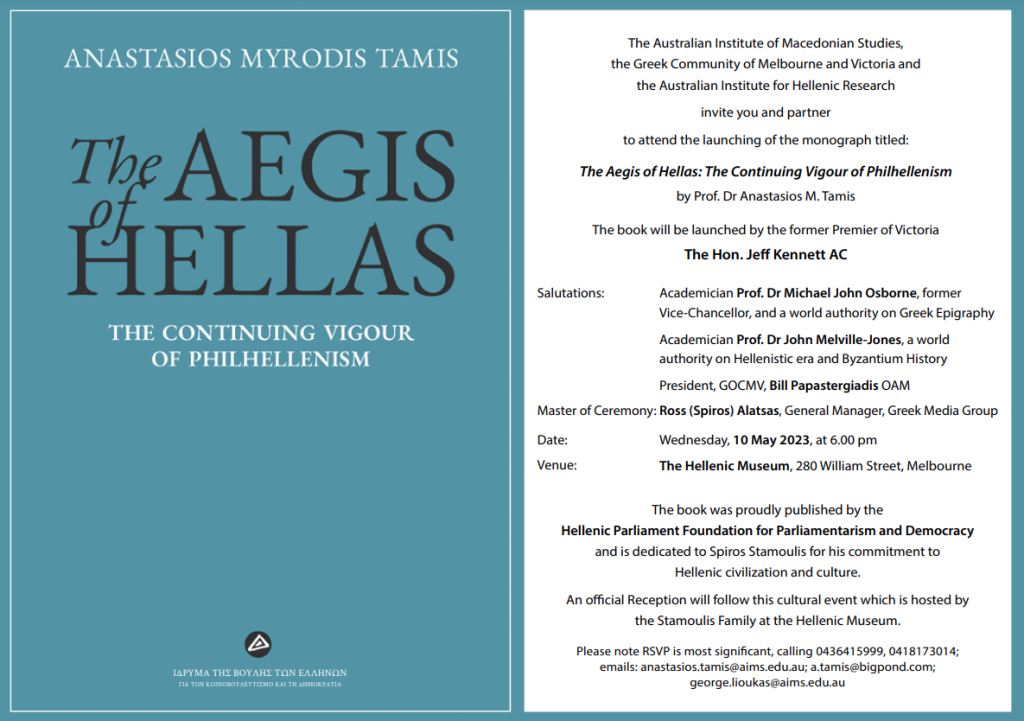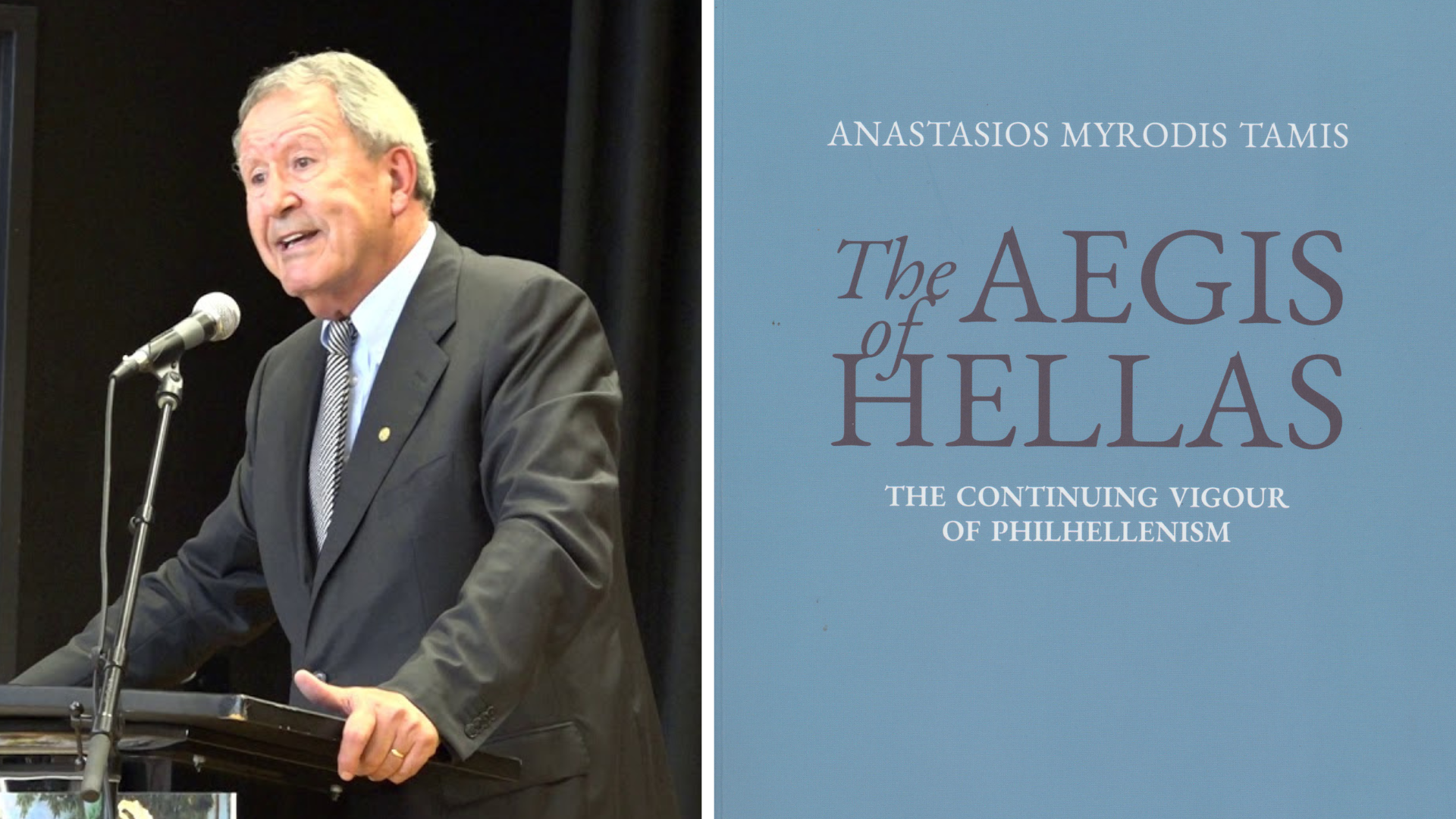The Hellenic Parliament Foundation has announced the publication of the book The Aegis of Hellas: The Continuing Vigour of Philhellenism by Professor Anastasios Tamis, Director of the Australian Institute for Hellenic Research. This is an overview and analysis of the multiple forms of interest in Greek culture – from ancient times until the present day all over the world.
The book considers not only the Hellenic Diaspora but also the various cultural networks consisting of people who study Greek civilisation as a form of cultural reference. Each chapter of the book discusses a continent, and refers to people, legacies and processes that were and remain active in the specific time and geographical space.
The scale of this research endeavour is massive. It is a step towards a global overview of Greek cultural references. It embraces academic work, journalism, economic, political and social actors, popular and high culture. It focuses on the concept of networks, a prominent feature of the organisation of the Greek world and of Philhellenism for centuries.
It stands as a testimony to the resilience, vigour, contemporaneity and radiance of Greek culture and of the communities of the Greek Diaspora. On the other hand, it examines this radiance as one of the many factors that shape the contemporary world and seeks to place the influence of global Greek culture and legacies in their proper contexts, geographical and historical.
The Hellenic Parliament Foundation hopes that this work will contribute to the ongoing discussion about the role of culture, transnational movements and especially Philhellenism in the shaping of the contemporary world. Moreover, the Hellenic Parliament Foundation presents this publication as an expression of its profound respect for the numerous people throughout the globe – Greeks by descent, but also (so many of them) Greeks by choice – who either dedicate their lives to the study of Greek culture or take an active interest in it as a cultural reference.

In a world that moves at breathtaking speeds, and in an era in which constant change is the order of the day, the activity, contribution, work and impact of these people are a great honour for the whole of the Greek nation.
The book is also an expression of gratitude for the Greeks of the Diaspora – one of them is the author of the book – who carry their cultural legacies in their hearts. These cultural legacies help them become active and creative citizens of their new homelands. On the other hand, this book is not simply a discussion of legacies only; the reader will also note that it addresses the present and offers food for thought for the future as well.
This book is also about culture and ethos (paedeia); it aims to validate that culture also includes such all-significant matters as language, philosophy, politics, science, art, literature, and religion, as well as mental and moral activities which, more than the outcomes of a material nature, determine the course of civilization. The roots of civilisation, being the product of man’s creative activity, lie deep in the ages gone by.
Naturally, the Hellenic culture, ethos and civilisation in diachronia, over the last 3,500 years, during its persistent creative capacity, have been adopted by non-Greeks to satisfy their social, cultural, political, and other needs. They can be described as Philhellenes.
The Hellenic Parliament Foundation as well as the author are aware that the subject of this book is so wide that it could not possibly aspire to settle the issue in a definite manner. It is, however, an attempt to sketch a comprehensive picture of global Philhellenism and provide a reference work. Both the Foundation and the author hope that this book may become the pivot for the better understanding of the global connotations of Greek culture, but also for the undertaking of additional studies about them.

